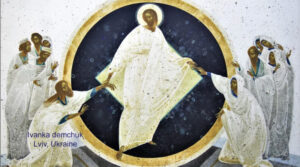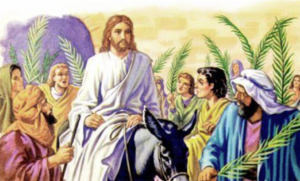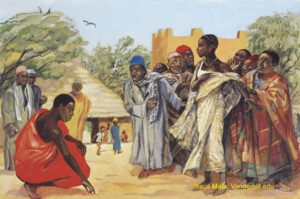The matter most on my mind that night was a closing paragraph of Cardinal Daniel DiNardo’s recent letter to the U.S. Catholics expressing his “sadness, anger, and shame over the recent revelations concerning Archbishop Theodore McCarrick” which “deepened in light of the Pennsylvania Grand Jury report.” The Cardinal wrote:
 I apologize and humbly ask your forgiveness for what my brother bishops and I have done and failed to do. Whatever the details may turn out to be regarding Archbishop McCarrick or the many abuses in Pennsylvania (or anywhere else), we already know that one root cause is the failure of episcopal leadership. The result was that scores of beloved children of God were abandoned to face an abuse of power alone. This is a moral catastrophe. It is also part of this catastrophe that so many faithful priests who are pursuing holiness and serving with integrity are tainted by this failure.[i]
I apologize and humbly ask your forgiveness for what my brother bishops and I have done and failed to do. Whatever the details may turn out to be regarding Archbishop McCarrick or the many abuses in Pennsylvania (or anywhere else), we already know that one root cause is the failure of episcopal leadership. The result was that scores of beloved children of God were abandoned to face an abuse of power alone. This is a moral catastrophe. It is also part of this catastrophe that so many faithful priests who are pursuing holiness and serving with integrity are tainted by this failure.[i]
As with many of us, while I slept, whatever was foremost in my mind stayed with me during the night and subconsciously my brain worked with it.[ii] Then, when I began my next day with Morning Prayer, the words of the Psalms and Readings brought new light to the subject. (Of course, this only happens when I let myself sit in God’s presence during morning prayer and not let my mind rush ahead to whatever I want to accomplish during that day.)
That Morning Prayer began:
The Lord, ye know, is God indeed;
Without our aid he did us make;
We are his folk, he doth us feed;
And for his sheep he doth us take.
I stopped and asked myself: God didn’t have to make us the way we are. He could have made us so that, when we choose to follow the inclination we sense is a call from God to become a priest, a spouse, a vowed religious, we would be cleansed of all urges to engage in thoughts and activities that would lead us to secret infidelities to those promises. God could have made us so that, once we publically commit ourselves to something, be it marriage, priesthood or religious life, we automatically are “programmed” to live it faithfully. But God didn’t make that happen automatically. Why? And what did God do instead of that?
I know of no one right answer to these questions, but I have a hunch that most, perhaps all of us, made our commitments to God and to our spouses-to-be with all the fervor and good intentions in the world, but, at the time, we were “in love” (or we thought we were) and really didn’t know the full extent of that to which we were committing. And it seems to me that we need the ups and downs of our trying to live out those vows to teach us how to be “in love” in the true sense of the words.
It would be nice if marriage, ordination and religious profession made us instantly understand and become faithful to what we promise in those ceremonies, but that isn’t the way we are. We make mistakes. We make bad choices. We rationalize away our behaviors. And it may take years, even decades, for one to arrive at the point where one is at or near the place where one can honestly say “I am sufficiently in love with God and my spouse that it is natural and easy for me to be faithful.”
So, why didn’t God make it easier for us to “get with the program?” I suspect it is because God wanted us to have something to do with becoming the awesome persons we are capable of becoming.
WE ARE THE CHURCH
And what about the mistakes we make? In the Church right now, we are focusing on what Cardinal DiNardo calls a “spiritual crisis” and a “moral catastrophe” and that it is. It will be helpful to the Church if, in the midst of our sadness and our support for the long overdue changes in the functioning of the organizational Church, we, who are the Church, consider changes needed in our own lives, our families and our communities. We are and are seen by others as a Catholic community (speaking and acting inside and outside of our homes, rectories and convents). We claim to know that we are “made in the image and likeness of God,” a God Who is a Community of Persons, a Trinity. We can’t go it alone when we make commitments that involve a significant other and, in the Christian vision, impact larger communities, namely, parishes, Church, extended families, towns, countries, etc. Nothing we do affects only us, so what is hidden is a community matter. Often, those who are in positions to help the most (parents, business and Church leaders) are the last ones to know because the people who know don’t take steps to get the information to them. As Cardinal DiNardo puts forth in criteria for the USCCB plan, we do need structures and guidelines as well as a means of measuring accountability and growth, but we also need to recognize that an offender is also a brother or sister and needs the honest, caring advise that only a concerned brother or sister can give.
I suggest a few areas to consider:
- Our own fidelity to the promises we have made.
- Life at Home. (Home includes parishes, rectories and convents.) Have we established solid Christian faith-based family and household rules and regulations so that everyone knows what is important to us and how this is visible in our home and in our words, actions and activities at home and outside the home?
- Channels of Communication. We all can learn, not only from the current reports of Church scandals, but also from reports of suicides, mass shootings and substance abuse, that parents and people in authority are often the last to know about what a person considers a failing on their part.
Perhaps, in these super busy lives we lead, we should make a weekly calendar appointment to spend time thinking about these areas of our lives. And, where advisable, discuss what this reveals to us with those in our home. The Sacrament of Reconciliation is always available.
WHAT CAN WE DO
So, in response to what can we do to make sure that this or something like it is less likely to happen in the future, we can pray, encourage and support what the U.S. Bishops Conference is doing and participate in any way that we can, but we can also work on the three area mentioned above. In that way, we are using this “spiritual crisis” and “moral catastrophe” as an opportunity for growth on all levels.
My Morning Prayer continued with Psalm 118:18
“The Lord chastised me severely but did not let me die.”
and, from St. Paul’s letter to his disciple Timothy:
“We may be unfaithful, but he is always faithful.” 2 Timothy 2:13.
and it ended with this prayer:
Lord God, fill our hearts with your love, so that, loving you above all and in all, we may attain your promises which the heart of man has not conceived. Through our Lord Jesus Christ, your Son, in the unity of the Holy Spirit, one God, for ever and ever. Amen
Sister Loretta Fernandez, RSM
[i] President of U.S. Bishops’ Conference Announces Effort That Will Involve Laity, Experts, and the Vatican as U.S. Bishops Resolve to Address “Moral Catastrophe“, Cardinal Daniel DiNardo, President, U.S. Conference of Catholic Bishops, August, 2018
[ii] “Sleep can be a powerful creativity-booster, as the mind in an unconscious resting state can make surprising new connections that it perhaps wouldn’t have made in a waking state.” “5 Amazing Things Your Brain Does While You Sleep”, Caroline Gregoire, The Huffington Post, April, 2014




